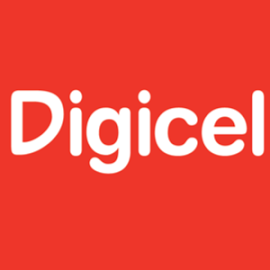 “Listen, Little Boy, in this business there’s only one law you gotta follow to keep out of trouble: Do it first, do it yourself, and keep on doing it.” ~ Tony Camonte in Scarface
“Listen, Little Boy, in this business there’s only one law you gotta follow to keep out of trouble: Do it first, do it yourself, and keep on doing it.” ~ Tony Camonte in Scarface
Caribbean and South Pacific cell carrier Digicel made a bold move in the digital ad blocking battle. According to Tim Peterson in Advertising Age, the company has fewer than 14 million customers but their recent actions could have a massive impact on the future of digital advertising.
Peterson notes that “Digicel’s recent decision to block mobile ads that don’t pay their way isn’t a big deal in isolation. But the idea could prove significant, so its adoption by even one carrier has set the ad industry rushing to predict its ripple effects.”
Digicel is taking this stand just as they are about to take their company public.
“[Their] decision to enable ad-blocking by default — and the potential for other carriers and internet service providers to follow suit — opens a new front in the ongoing war on advertising, which would no longer be simply a war for consumers’ hearts and minds,” Peterson writes.
And they aren’t playing small. “In announcing the move, Digicel named Google, Facebook and Yahoo specifically as companies whose ads it would block without payment,” Peterson continues. Digicel claims they only want “to recover some of the tab that’s run up daily by ad networks using its infrastructure to do their business,” according to Peterson.
Peterson notes a billion or so devices around the globe already have customer-installed ad blocking. And that number is only growing, with expected advertiser losses in the billions. Where does this leave customer choice for their 14 million users?
“Digicel may allow its customers to opt out of the ad blocking and plans to not block ads on certain unnamed local news sites, according to a company spokeswoman,” writes Peterson. “Aside from those conditions, there will not be any ad formats immune to the blocking, and there won’t be ad providers given a pass without agreeing to share that ad revenue with Digicel, she said.”
It’s not about customer choice, or improving the mobile viewing experience, or any of those other happy-sounding things that we’ve heard as part of these ad-blocking phenomena. Nope, this time it’s about money. At least the company is being straightforward about it.
It’s an absolutely fascinating development, and we’re bound to see this played out in public forums and closed-door executive suites…and it surely won’t be long before politicians get involved.
Meanwhile, back in magazine land, we’ll just keep printing those gorgeous ads that our customers love to read while the rest of the world loses their minds and digital ad values continue to drop. It’s days like these…
